SEJONG -- Makgeolli has drawn wide attention at home and abroad over the past few years after a research report claimed the Korean alcoholic drink from fermented rice’s anti-cancer effect is about 20-fold higher than that of wine or beer.
However, regardless of the effect against cancer, makgeolli devotees pick the traditional taste, originated from the Joseon Dynasty (1392-1910), for the reason of their steady drinking of it.
Its flavor appeals to many inbound tourists as TV entertainment programs have shown. Visitor Ville Maijala from Finland, in his late 20s, showed his own brewing of makgeolli with rice and nuruk (a sort of leaven) in his hometown after expressing his love for the drink in South Korea on MBC TV. Alberto Mondi, an Italy-born TV celebrity in Korea, said more and more foreigners are praising the rice liquor.
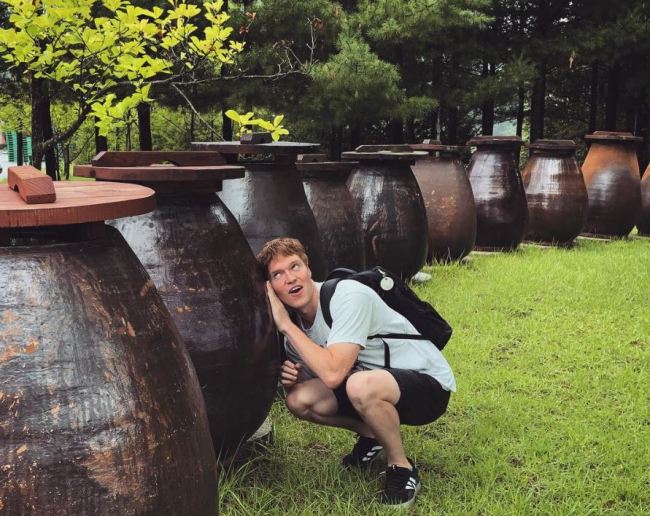 |
Ville Maijala in Hoengseong, Gangwon Province (Instagram) |
While about three major brands dominate the overall makgeolli market in Seoul and its satellite cities, the domestic liquor industry and devotees are focusing on provincial specialties.
Due to short expiration dates of only 10 to 20 days in case of unpasteurized makgeolli, it had been difficult for consumers including inbound residents in the Seoul metropolitan area to purchase regional products in retail stores or restaurants.
 |
Alberto Mondi (JTBC capture) |
According to the liquor industry, there are more than 700 makgeolli brewhouses, including microbreweries, in Korea, and more than 2,000 products.
While the rate of liquor tax on beer and soju is 72 percent, the tax rate on makgeolli is only 5 percent. This means the latter is not a cheap liquor when the three’s consumer price tags are compared.
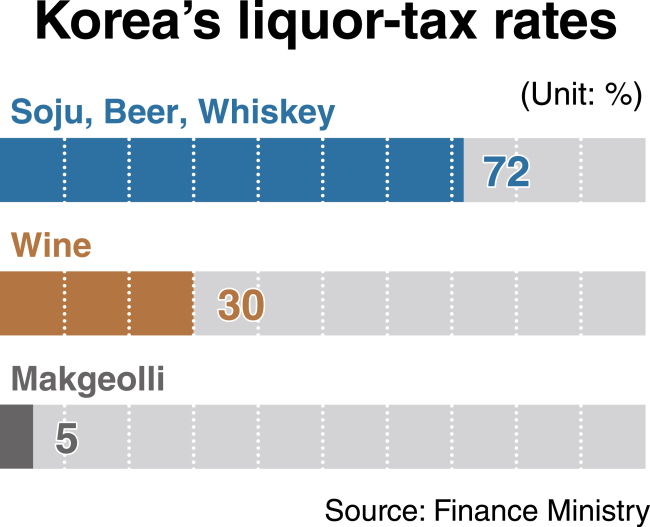 |
(Korea Herald) |
“I am using electronic commerce for deals with a makgeolli producer in South Gyeongsang Province for about a year,” said salaried worker Kim Se-yule, 40, in Seoul. Kim said he could receive ice-packed products in one or two days from order.
His choice was Daraengifarm Makgeolli from Namhae, South Gyeongsang Province, which is free of synthetic sweeteners like aspartame. Its maker brews liquor with organic agricultural products, including unpolished rice, black rice and citron, from terraced paddy fields in the district. Daraengifarm products come in two alcohol strengths -- 6 percent and 11 percent by volume.
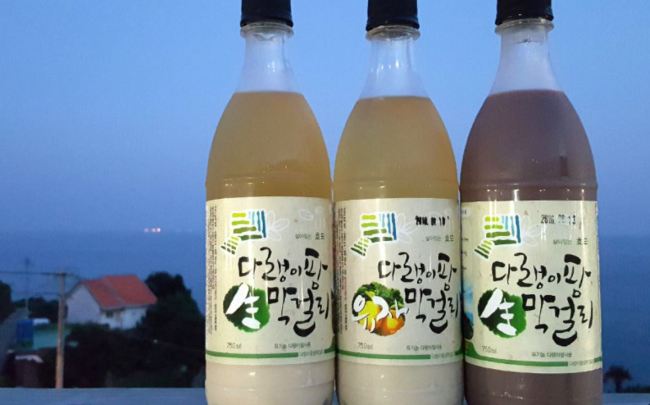 |
Daraengifarm Makgeolli |
A female high school teacher, 43, in Seoul said she was surprised by pure taste of black-rice Daraengi Makgeolli. “It has a dried, pure yogurt-like flavor. I’ve become a big fan of it and do not buy nationwide-distributed products in large discount chains any more.”
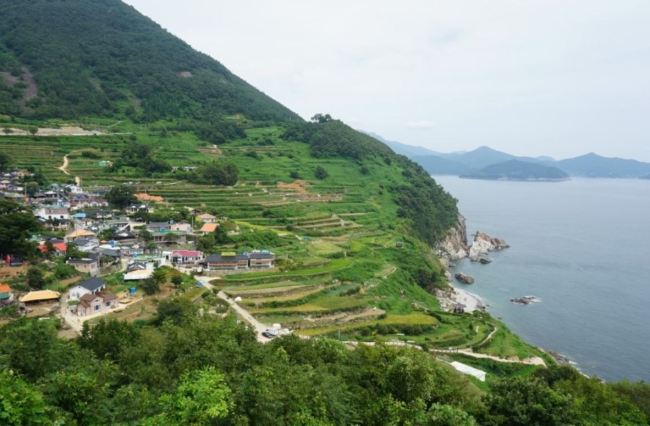 |
Terraced paddy fields of Gacheon village in Namhae, one of the few districts of Hallyeosudo Marine National Park |
While the Daraengi producers are senior couple in Namhae, another seniors in Haenam, South Jeolla Province are drawing attention for their makgeolli, dubbed Haechang.
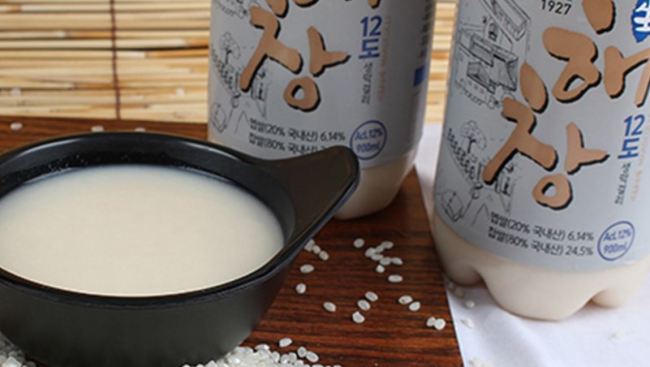 |
Haechang Makgeolli |
Haechang Makgeolli is made from the mix of freshly harvested rice, glutinous rice and nuruk, in which no aspartame-like ingredient is contained. Its products are divided into three according to alcohol contents of 6, 9 and 12 percent. Thick taste is evaluated as its specialty.
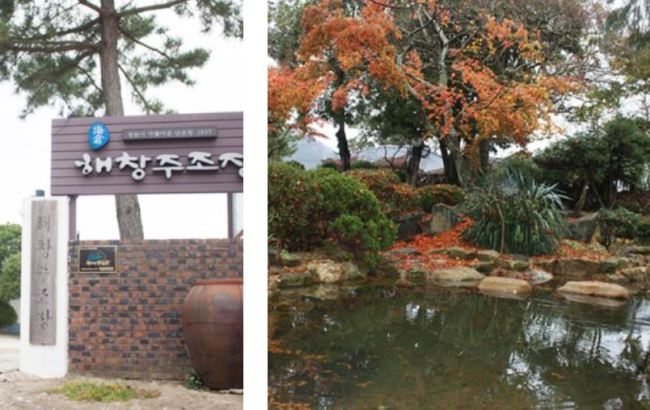 |
Haechang Brewery in southwestern district Haenam-gun |
Tourism industry worker Oh Mi-kyoung in her 30s said that she prefers Haechang products to those circulated in Gyeonggi Province, where she is residing.
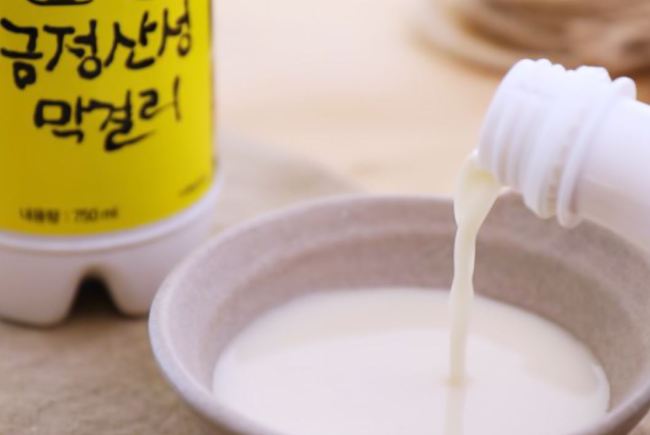 |
Geumjeongsanseong Makgeolli |
A product from Busan, labeled Geumjeongsanseong Makgeolli, is gaining popularity in the Internet shopping space for its peculiar, acidic flavor with 8 percent alcohol strength. Its organic nuruk, fermented in Mount Geumjeong fortress is widely known to devotees nationwide.
Its producer Yoo Cheong-gil was designated as a food master by the Agriculture Ministry in 2013, a first for the makgeolli brewhouse segment.
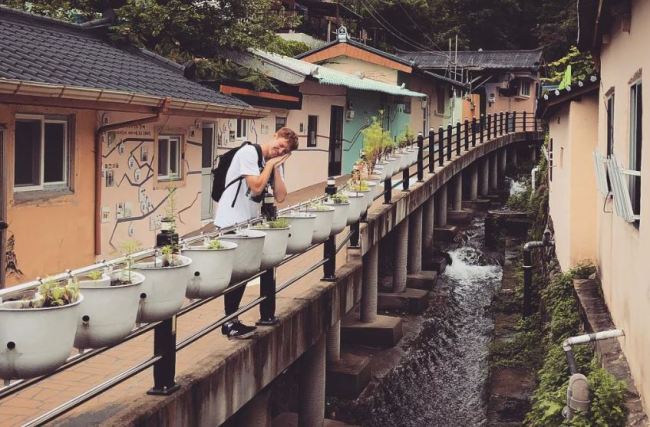 |
Finnish geologist and tourist Ville Maijala poses during his visit to Mount Geumjeong in Busan and Yangsan, South Gyeongsang Province. (Instagram) |
Rice from Yeoju, Gyeonggi Province is acknowledged as one of the chosen few for its good taste since the Joseon era. Lee Sook, female CEO of Chuyeondang brewery, is providing consumers with premium makgeolli, dubbed Baengnyeonhyang, which means a 100-year-long fragrance.
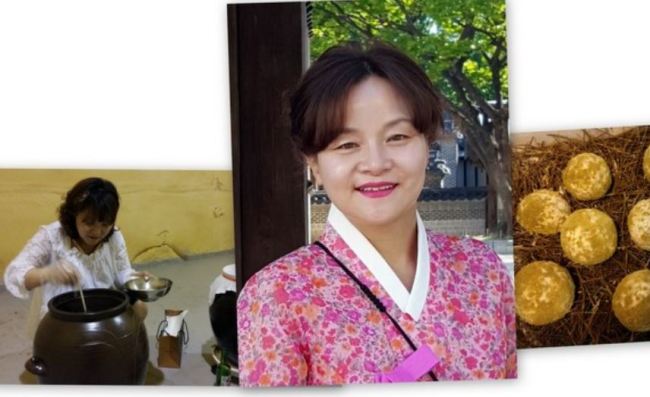 |
Chuyeondang brewery CEO Lee Sook |
Lee’s products are packed in slim glass bottles like ice wine from Germany or Canada. Baengnyeonhyang is using a “samyangju” method, which means it is brewed in three stages.
Though its alcohol strength is quite high, at 10 percent, its dry, clean flavor attracts many consumers in online shopping malls.
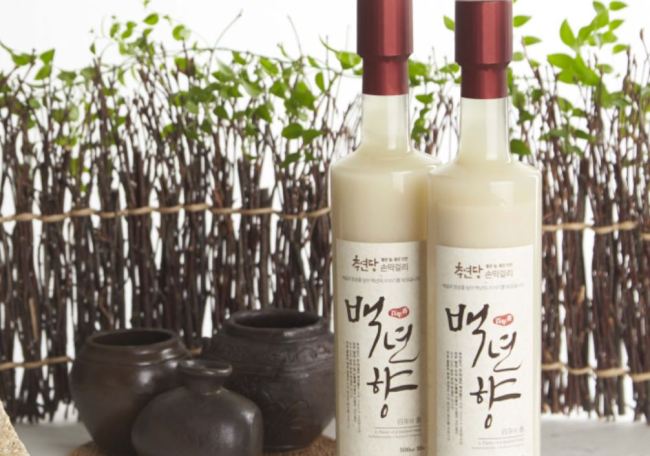 |
Baengnyeonhyang |
A Korean in his 30s residing in London said, “I could purchase only sterilized makgeolli packed in white cans, of which expiration dates are about one year with very high price tag, here.” He argued that the issue surrounding exports might be extending the expiration period of unpasteurized makgeolli or building breweries in overseas markets.
Saeng makgeolli refers to those whose yeast and bacteria are still alive, so it continues to ferment during distribution to consumers.
By Kim Yon-se (
kys@heraldcorp.com)


















